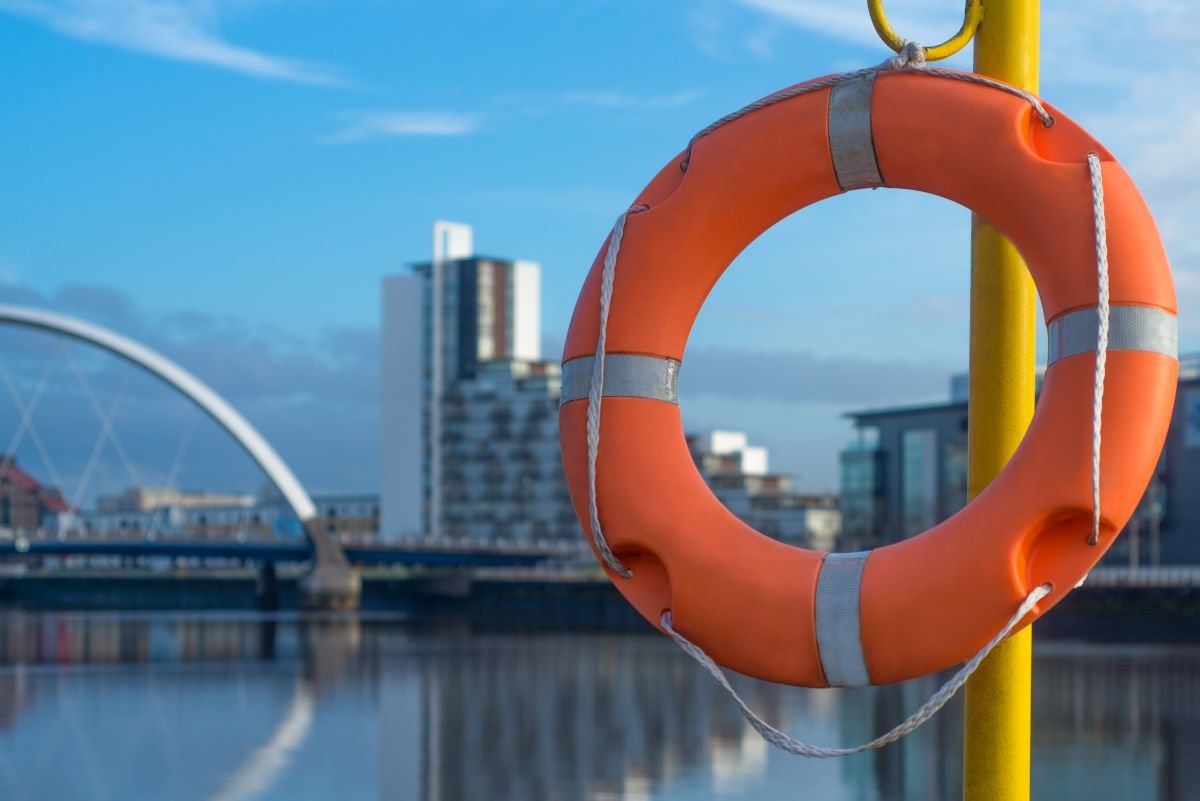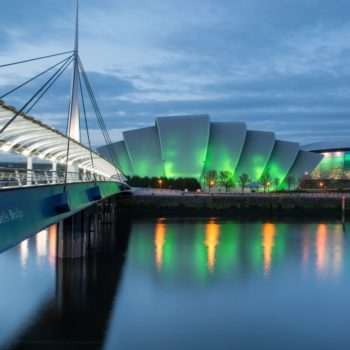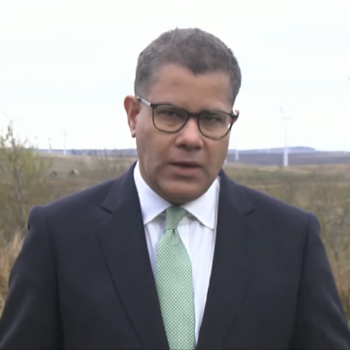OECD countries have still not delivered their financial promises. Despite the cost savings available from switching to renewable energy, most G20 emerging economies have not committed to higher emissions cuts in 2030 or to stop building coal power stations.
Unless positions change, Glasgow will fall far short of keeping global temperature rise below 1.5C this century. This threatens to undermine the credibility of the Paris Agreement with the most vulnerable countries and public opinion in many countries.
This dire result is not inevitable. All the major powers see a strong Glasgow result as in their domestic and international interest.
At the General Assembly Biden pledged to mobilise hundreds of billions of dollars in sustainable investment through the G7 “Build Back Better World” initiative. President Van der Leyen similarly launched a complementary investment initiative through the EU Global Gateway. President Xi committed to new green financing and announced the end of Chinese coal support in their Belt and Road Initiative. Geopolitical competition is driving a new race to be the best green infrastructure partner for developing countries.
The irony is that these new US, EU and China initiatives could massively increase the likelihood of transformational climate outcome at Glasgow, but currently there are no plans to link the two.
Limited access to finance and higher cost of capital due to perceived political, currency and macroeconomic risks is a real impediment for bringing clean energy to scale in developing markets.
The main blockage to higher climate ambition at Glasgow is G20 countries like India and Indonesia doing too little. Their problem is a lack of available and affordable financing, especially as many see worsening macroeconomic impacts from COVID. While renewable energy is more cost-effective than building coal or gas in most situations, it requires greater upfront capital and more sophisticated infrastructure. Limited access to finance and higher cost of capital due to perceived political, currency and macroeconomic risks is a real impediment for bringing clean energy to scale in developing markets.
The world is stuck in a catch-22 where countries feel unable to move without more certainty of affordable finance. But by failing to provide clear commitments to net zero they increase their perceived risks to investors that are increasingly attuned to climate change.
This deadlock won’t resolve itself just through market action. There are trillions of dollars in the pockets of sustainability-conscious institutional investors pledged to seek “green” investments, but this money is not flowing at scale to emerging economies.
US, EU and Chinese leaders now need to turn UN General Assembly announcements into clear signals about where funding will come from to shift the deadlock on climate ambition before Glasgow.
This does not require huge commitments of new public funds but rather a political agreement at the ongoing IMF/World Bank meetings and the G20. Countries must commit to driving the reforms needed in bilateral and international financial institutions to ensure a massive scale-up of high-quality investment for a green and inclusive global recovery in 2022.
The world is stuck in a catch-22 where countries feel unable to move without more certainty of affordable finance. But by failing to provide clear commitments to net zero they increase their perceived risks to investors that are increasingly attuned to climate change.
The World Bank exemplifies the current problem. They have missed their previous targets on mobilising private capital. On average, they are only able to mobilise less than USD one from the private sector for every USD one of climate finance they are providing.
The World Bank is now asking its shareholders for more capital to support increased climate-related investment and claims it can leverage up to ten times this amount in private capital. Shareholders are unsurprisingly sceptical given its track record and seem unlikely to agree to this request.
This would be a strategic mistake.
The whole Multilateral Development Bank system needs higher capitalisation to meet the climate challenge, but this must be conditional on radical reforms to how these institutions work individually and collectively.
New E3G analysis examining past transactions suggests that MDB funding of renewables investment could be increased six-fold through full Paris alignment and better use of existing capital and eight-fold with an additional modest capital increase. But this requires significant changes in risk management practices, internal incentives and better cooperation between public banks at the regional level.
There is a need to stop the damaging competition between bilateral and multilateral banks, mostly owned by the same shareholders, for a limited number of easily bankable green projects. Shareholders must insist on an “ecosystem approach” that combines financial support from bilateral and multilateral institutions and deeper partnerships with national development banks. This will improve project pipeline development and through simplification, risk-pooling and aggregation attract institutional investors to invest at scale in developing country green bonds.
MDB funding of renewables investment could be increased six-fold through full Paris alignment and better use of existing capital and eight-fold with an additional modest capital increase.
The lacklustre and delayed MDB climate plans promised in 2015 show that reforms won’t come from the bottom up. Leadership is needed from major shareholders. The public owns these financial institutions and has a right to see them work much harder to deliver a climate safe world. The political stage is set for big changes in global clean infrastructure financing, but it would be cruel if these signals came too late to influence the Glasgow outcome. Luckily, there is still time for leaders to use the upcoming IMF/World Bank meetings and G20 Leaders’ Summit to outline a reform process and put flesh on the bones of their national announcements.
The UN General Assembly announcements have opened a thin but credible pathway to a transformational outcome for the climate at Glasgow. It is now up to leaders to make sure this promise is delivered over the next 30 days.


